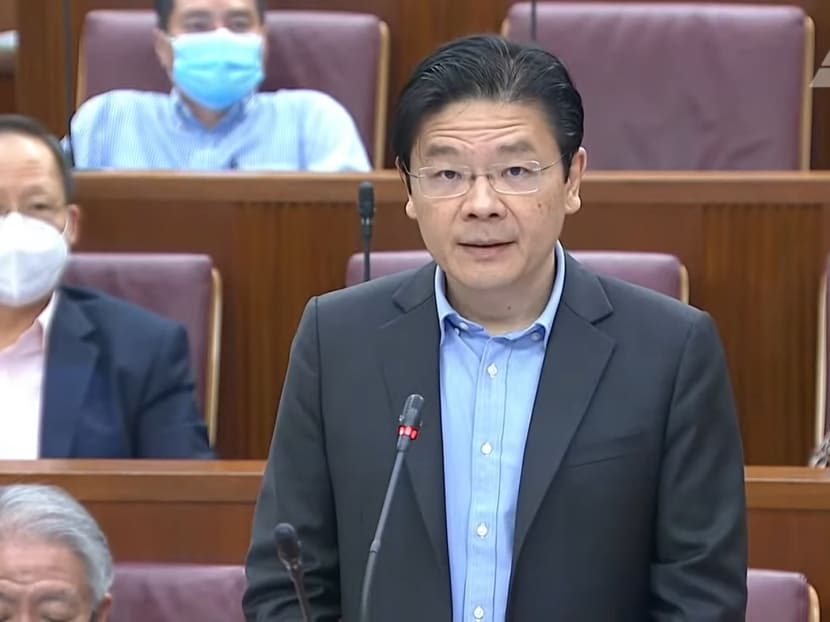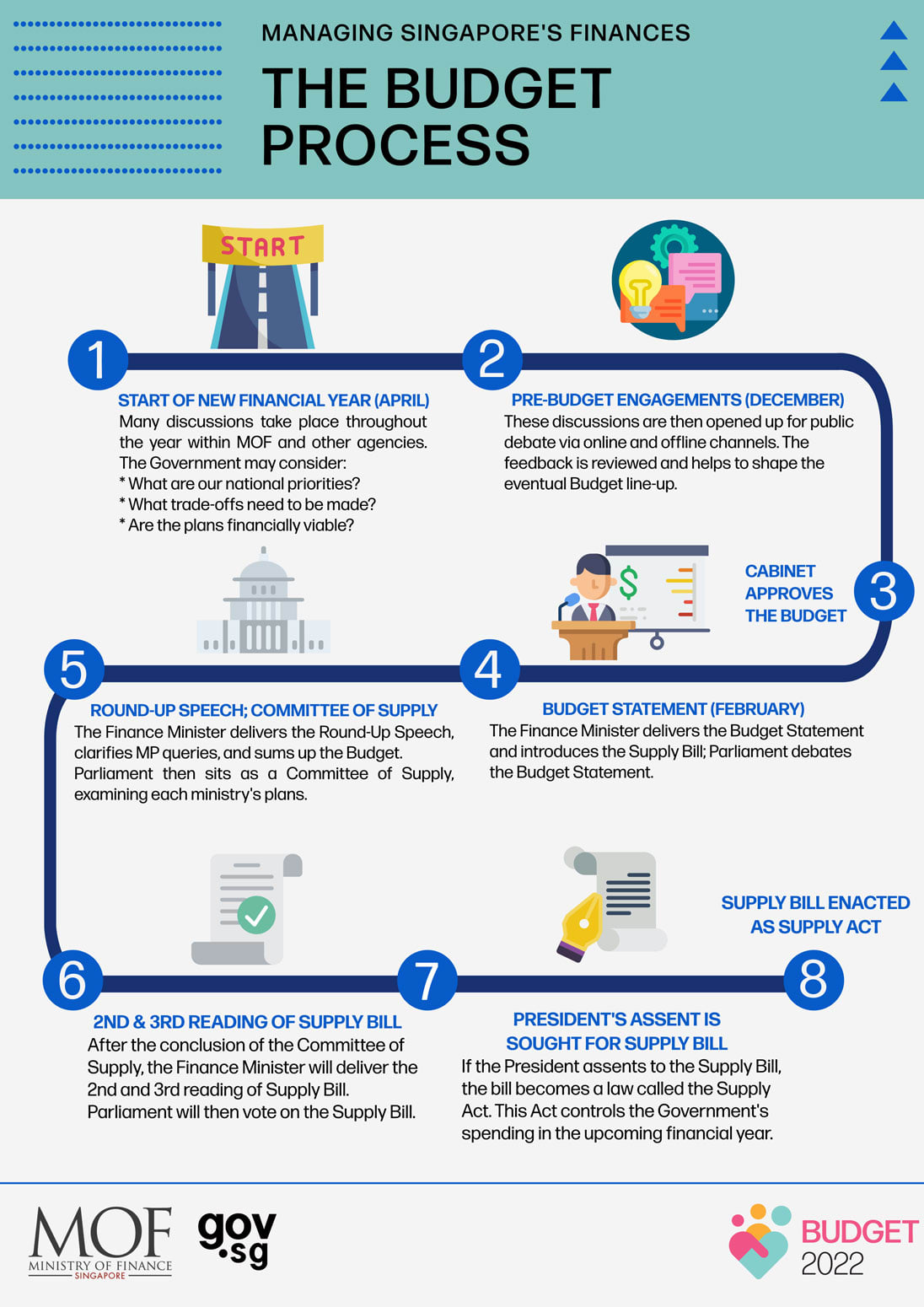Budget 101: What is the Budget and why is it important to Singaporeans?
SINGAPORE — The 2022 Budget statement will be delivered by Finance Minister Lawrence Wong in Parliament on Feb 18 at 3.30pm.

Deputy Prime Minister and Minister for Finance Lawrence Wong will deliver the 2024 Budget statement in Parliament on Feb 16.
On Friday (Feb 18), Finance Minister Lawrence Wong will deliver this year's Budget statement. To help Singaporeans better understand the country's budgetary process and the issues at hand, TODAY is running a series of articles to explain basic concepts, terms and essential background information in the lead-up to Budget Day 2022.
- The 2022 Budget statement will be delivered by Finance Minister Lawrence Wong in Parliament on Feb 18 at 3.30pm
- The Budget includes the revised government revenue and expenditure projections for the current financial year, as well as what is planned for the upcoming financial year
- Preparations for the Budget usually start a year before and involve various stakeholders
- Economists said that the Budget will directly affect the daily lives of Singaporeans, such as costs of living and the availability of jobs
- It will also have long-term effects on future generations
SINGAPORE — The 2022 Budget statement will be delivered by Finance Minister Lawrence Wong in Parliament on Feb 18 at 3.30pm.
It will address concerns over "more immediate issues" such as the cost of living and provide support for sectors facing difficulties due to Covid-19, Mr Wong said last week.
For Singaporeans who may not be familiar with the Budget and its process, it may be difficult to gain a full understanding of it.
So what exactly is the Budget and why is it important to Singaporeans? TODAY spoke to several economists to find out more.
WHAT IS THE BUDGET?
Economist Song Seng Wun from CIMB bank gave the analogy of families planning their household expenditure by considering the amount of income they have and what they need to spend on with the money they have.
“That’s basically the equivalent at the national level in terms of the Singapore Government, how it projects to spend for the year to ensure that businesses, households and the broader economy continue to operate in the most efficient manner,” he said.
The Budget, which is planned yearly, includes the revised government revenue and expenditure projections for the current financial year, as well as the planned government revenue and expenditure for the upcoming financial year.
Government revenue include:
- Taxes, which make up the biggest component (87 per cent) of revenue. This includes Goods and Services Tax (GST), personal income tax and corporate tax
- Returns from investments of Singapore’s reserves, such as dividends and other assets
- Fees and charges, such as Certificate of Entitlement premiums for vehicles
Government expenditure include:
- Operating expenditure, which includes spending on the country's manpower, as well as grants to organisations and statutory boards
- Development expenditure, which is spending on government development projects or grants given to statutory boards and organisations such as universities for development projects
The Budget is prepared for each financial year, which lasts from April 1 to March 31 the following year, and preparations usually start a year before.
THE BUDGET PROCESS
- While preparing the Budget statement, the Ministry of Finance gathers feedback from other ministries and agencies to find out the effectiveness of existing policies
- It also gathers feedback from the public via online and offline channels. These include the Singapore Budget website and social media channels of Reach, the Government's feedback unit
- After the Government has decided on the Budget, the Minister for Finance delivers the Budget statement in Parliament, usually in February
- In the week after, Parliament reconvenes for the Budget debate, where Members of Parliament address various aspects of the latest Budget
- The Minister of Finance then delivers a round-up speech, clarifying members’ queries and summarising the key points of the Budget
- Parliament sits as the Committee of Supply to examine each ministry’s plans. This is when the various ministries can go into greater detail regarding the Budget
- After the Committee of Supply has voted on all ministries’ estimates, it reports its decision to Parliament, which will then debate and vote on the Supply Bill, which is a draft law
- The Supply Bill is then sent to the President for assent or official approval. If assented, it will be enacted into a law called the Supply Act. This Act controls the Government’s spending in the coming financial year
WHY IS THE BUDGET IMPORTANT TO SINGAPOREANS?
The Budget will directly affect the daily lives of Singaporeans as it concerns matters such as the cost of living, the availability of jobs and what subsidies people are eligible to receive.
However, economists urge Singaporeans to adopt a broader perspective and to be more aware of the Budget's long-term effects.
Senior economist Irvin Seah from DBS bank said: “The impact of the Budget is not just getting a bunch of one-off goodies from the Government. It actually has a long-lasting impact on the future of Singapore as well as our children.
“For example, it could have an impact on the education of our children. There could be measures that affect the amount of subsidies we get in public education. This would then affect how much we need to pay for education in the future.”
Mr Song from CIMB said that it is important to see how the Budget will shape Singapore to stay relevant in the long run.
“It may not matter today or tomorrow. But for those who have children and grandchildren, it matters because this is where future job creations will lie,” he said.
HOW TO UNDERSTAND THE BUDGET?
Ms Selena Ling, head of treasury and research at OCBC bank, said that having a basic understanding of what goes into the government revenue would help Singaporeans understand the reasons for certain measures such as GST rate increase.
Mr Song also said that being aware of how the rest of the world is faring would provide a deeper understanding of various aspects of the Budget.
“We are a small and open economy that depends on trading. So how well we do and how much the Government collects depends very much on how well other economies are doing,” he added.
“We have to see what’s happening in the broader, wider picture outside of Singapore to realise what we can have on our table at home.”












